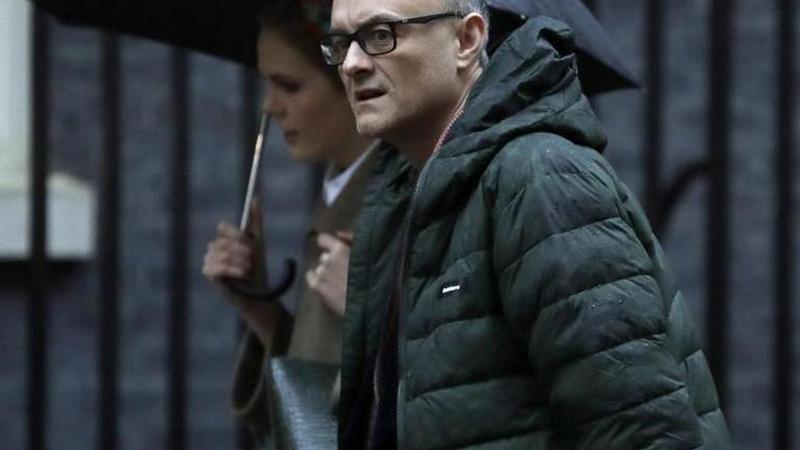Published 18:26 IST, April 25th 2020
UK: Boris Johnson aide attended key science meetings on virus
Britain’s government on Saturday defended the independence of the scientists advising it on coronavirus after it emerged that Prime Minister Boris Johnson’s controversial chief aide had attended meetings of the group.

Britain’s government on Saturday defended the independence of the scientists advising it on coronavirus after it emerged that Prime Minister Boris Johnson’s controversial chief aide had attended meetings of the group.
Criticism of Johnson’s Conservative government is mounting as the U.K.’s COVID-19 death toll rises and a nationwide lockdown imposed a month ago drags on. The confirmed number of coronavirus-related hospital deaths is likely to reach 20,000 this weekend.
After a report in The Guardian, the government confirmed that Johnson adviser Dominic Cummings had attended several meetings of the Scientific Advisory Group for Emergencies, or SAGE, and listened to discussions. But it denied the Guardian’s claim that Cummings — who is not a scientist — was a member of the group.
Cummings is a contentious figure, a self-styled political disruptor who was appointed to a key role by Johnson after masterminding the victorious “leave” campaign during Britain’s 2016 referendum on European Union membership.
The government said “SAGE provides independent scientific advice to the government. Political advisers have no role in this.”
SAGE is a usually little-known group headed by Chief Scientific Adviser Patrick Vallance and Chief Medical Officer Chris Whitty. The government has declined to publish its full membership, saying that could leave the scientists open to lobbying or other pressure.
David King, a former government chief scientific adviser, told The Guardian he was “shocked” to learn political advisers were involved in SAGE meetings. But other scientists who have advised the government said it was usual for political aides to attend, though only as observers.
The main opposition Labour Party said Cummings’ attendance raised questions about the credibility of government decision-making.
“The best way to clear all of this up is for the government to be completely transparent with us and publish the minutes of the SAGE committee,” said Labour health spokesman Jonathan Ashworth.
The government says its response to the pandemic has been guided by scientific advice. That advice is under increasing scrutiny by critics who accuse the government of being slow to respond to the outbreak. Britain imposed a nationwide lockdown on March 23, later than in many other European countries. The measures have been extended until at least May 7.
As of Friday, 19,506 people with the coronavirus had died in British hospitals. The figure does not include
Scientists say the U.K. has reached the peak of the pandemic but is not yet out of danger. The number of people hospitalized with COVID-19 is declining, and the number of daily deaths peaked on April 8.
As fears recede that the health system will be overwhelmed, opponents are stepping up their attacks on Johnson’s Conservative government over shortages of protective equipment for medical workers and a lack of testing for the virus.
Meanwhile, health authorities urged Britons not to ignore symptoms of conditions other than the coronavirus, amid fears that cancer and other illnesses are going untreated.
Public Health England said visits to hospital emergency departments have fallen by almost 50% in April from the same month last year. The charity Cancer Research UK estimated that 2,250 new cases of the disease could be going undetected each week, partly because people are reluctant to go to hospitals for fear of catching the virus or overburdening the system.
The National Health Service encouraged people to seek urgent help if needed and to continue to attend services such as cancer screening and maternity appointments.
NHS chief executive Simon Stevens said “ignoring problems can have serious consequences — now or in the future.”
Updated 18:26 IST, April 25th 2020




